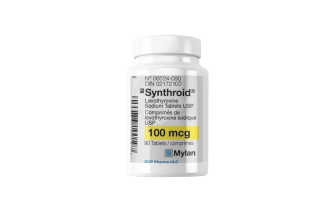Consult with your healthcare provider to determine if a Viagra prescription suits your needs. This medication is commonly prescribed for erectile dysfunction and can significantly enhance your sexual experience when used correctly. Be ready to discuss your medical history and any ongoing medications, as this helps your doctor make an informed decision tailored to you.
Before receiving a prescription, expect a thorough evaluation. Your doctor may conduct tests to rule out underlying health issues that could affect sexual performance. Open communication is key; share any concerns or symptoms you might be experiencing. This ensures you fully understand how Viagra works and its potential side effects.
Once prescribed, use Viagra strictly according to your doctor’s guidelines. Typically, you’ll take the medication about 30 minutes to an hour before engaging in sexual activity. Avoid excessive alcohol consumption, as it can diminish the effectiveness of the drug. Knowing these details helps maximize the benefits while minimizing risks.
- Understanding Viagra Prescription
- How Viagra Works
- Possible Side Effects and Precautions
- What is Viagra and How Does it Work?
- Who Should Consider Getting a Viagra Prescription?
- Men with Underlying Health Conditions
- Age and Psychological Factors
- Steps to Obtain a Viagra Prescription
- Prepare for Your Appointment
- Discuss Your Options
- Important Questions to Discuss with Your Doctor
- Dosage and Usage
- Interactions with Other Medications
- Potential Side Effects and Risks of Viagra
- Serious Risks
- Drug Interactions
- How to Properly Use Viagra for Maximum Effectiveness
- Common Myths and Misconceptions about Viagra
- Alternatives to Viagra: What Are Your Options?
- Prescription Medications
- Natural Remedies
- Insurance Coverage and Cost Considerations for Viagra
- Cost Factors
- Consult Your Doctor
Understanding Viagra Prescription
Consult a healthcare provider to determine if Viagra is appropriate for you. They will assess your medical history, current medications, and any underlying health conditions. This evaluation ensures your safety and the proper use of the medication.
How Viagra Works
Viagra, or sildenafil, enhances blood flow to the penis during sexual stimulation. It achieves this by relaxing muscles in the blood vessels, allowing for increased circulation. Be aware that sexual arousal is still necessary for the medication to be effective.
Possible Side Effects and Precautions
Common side effects include headaches, flushing, and upset stomach. More serious risks involve changes in vision or hearing, and an erection lasting longer than four hours, known as priapism. If you experience any alarming symptoms, seek medical attention immediately. Always inform your doctor about any pre-existing conditions, especially heart problems or those involving the eyes.
What is Viagra and How Does it Work?
Viagra, known scientifically as sildenafil citrate, is a medication primarily used to treat erectile dysfunction (ED). It ensures increased blood flow to the penis, enabling a man to achieve and maintain an erection when sexually stimulated.
This medication works by inhibiting an enzyme called phosphodiesterase type 5 (PDE5). By blocking PDE5, sildenafil helps enhance the effects of nitric oxide, a natural chemical in the body that relaxes the blood vessels in the penis. This relaxation leads to improved blood supply, which is necessary for an erection.
For optimal results, Viagra should be taken about 30 minutes to an hour before anticipated sexual activity. It remains effective for about four to five hours, allowing for spontaneity during intimate moments. Consuming a high-fat meal before taking Viagra may delay its effects, so it’s best to take it on an empty stomach or with a light meal.
While Viagra is effective for many men, it is crucial to consult with a healthcare provider before use, as it may interact with other medications or be unsuitable for individuals with certain health conditions, such as severe heart problems or low blood pressure.
Understanding how Viagra functions allows for informed decisions regarding its use in managing erectile dysfunction, enhancing sexual health and quality of life.
Who Should Consider Getting a Viagra Prescription?
Individuals experiencing consistent erectile dysfunction (ED) should explore the option of a Viagra prescription. This medication is specifically designed to address difficulties in achieving or maintaining an erection. If you find that ED affects your relationships or quality of life, consulting a healthcare provider may be beneficial.
Men with Underlying Health Conditions
Men diagnosed with certain health conditions such as diabetes, hypertension, or heart disease often face higher risks of developing ED. Viagra can serve as a therapeutic option for these individuals, helping to restore sexual function. It is advisable for these men to discuss their health conditions with a doctor before starting any new medication.
Age and Psychological Factors
Older men may experience ED due to natural aging processes, hormonal changes, or psychological factors like anxiety and depression. If age-related changes impact sexual performance, Viagra may provide a solution. Addressing any underlying psychological issues alongside medication can enhance results and overall well-being.
| Factor | Recommendation |
|---|---|
| Consistent ED | Consult a healthcare provider for Viagra prescription. |
| Health Conditions | Discuss ED management strategies with a doctor. |
| Age-Related Changes | Explore Viagra as a treatment option. |
| Psychological Issues | Consider therapy alongside medication for best outcomes. |
Maintaining open communication with your healthcare provider ensures that you choose the most suitable approach to managing erectile dysfunction effectively.
Steps to Obtain a Viagra Prescription
Consult a healthcare provider for a proper evaluation. Schedule an appointment, either in person or via telehealth, to discuss your symptoms, medical history, and any current medications.
Prepare for Your Appointment
- Gather personal medical information, including any previous diagnoses related to erectile dysfunction.
- List all medications you currently take, including over-the-counter drugs and supplements.
- Consider any lifestyle factors that may contribute to your condition, such as smoking, alcohol use, or stress levels.
Discuss Your Options
- Be open and honest with your provider about your symptoms and their impact on your life.
- Ask about potential side effects and interactions with your current medications.
- Request information on lifestyle changes that may enhance treatment effectiveness.
After the assessment, if appropriate, your healthcare provider will prescribe Viagra. Ensure you understand the dosage and instructions. Follow up as needed to evaluate the medication’s effectiveness and any side effects.
Important Questions to Discuss with Your Doctor
Prepare specific questions to ensure you understand the medication’s benefits and risks. Ask about possible side effects of Viagra. Understanding these effects can help you assess your comfort level with the treatment.
Dosage and Usage
Inquire about the appropriate dosage for your situation. Different conditions may require different dosages. Discuss how and when to take the medication to achieve the best results.
Interactions with Other Medications
List any other prescriptions or over-the-counter medications you’re taking. Ask your doctor about potential drug interactions with Viagra. This information is crucial for safe treatment.
Clarify any underlying health conditions that might affect your suitability for Viagra. Conditions such as heart disease or low blood pressure can impact your treatment decisions.
Engage in an open dialogue about your sexual health. Sharing any concerns you have could lead to personalized recommendations and effective treatment plans.
Potential Side Effects and Risks of Viagra
Consult a healthcare professional before using Viagra. Common side effects include headaches, flushing, indigestion, nasal congestion, and dizziness. These symptoms typically resolve after a few hours but should be monitored. Seek medical attention if side effects persist or worsen.
Serious Risks
Viagra can lead to more severe complications, such as priapism, a prolonged and painful erection that lasts over four hours. This condition requires immediate medical intervention to prevent permanent damage. Additionally, individuals with cardiovascular issues should be cautious, as Viagra can cause fluctuations in blood pressure. Always disclose your medical history to your healthcare provider to determine the safest approach.
Drug Interactions
Using Viagra with nitrates or other medications for heart conditions can result in dangerous drops in blood pressure. Avoid mixing these without consulting your doctor. Alcohol consumption can also exacerbate side effects, increasing the risk of dizziness and reducing overall effectiveness. Be aware of all medications taken to mitigate potential interactions.
How to Properly Use Viagra for Maximum Effectiveness
Take Viagra approximately 30 to 60 minutes before sexual activity for optimal results. This timeframe allows the medication to enter your bloodstream and start working efficiently.
Ensure that you do not exceed the recommended dosage of one tablet in a 24-hour period. Following this guideline helps prevent side effects while still providing the necessary benefits.
Avoid high-fat meals prior to taking Viagra. Such meals can delay the onset of the medication, reducing its effectiveness. Instead, opt for light snacks if you plan to eat before sexual activity.
Stay adequately hydrated while using Viagra. Dehydration can amplify potential side effects, so drink enough water throughout the day.
Consider setting a comfortable and relaxed environment during intimate moments. Psychological factors play a significant role in sexual performance, and a relaxed setting can enhance the effects of the medication.
Limit alcohol consumption as excessive drinking can hinder the effectiveness of Viagra and lead to increased chances of adverse reactions.
Communicate with your partner about your needs and expectations. Open dialogue can alleviate anxiety and improve the overall experience.
Consult with your healthcare provider regarding any other medications you may be taking. Some interactions may affect how Viagra works or increase the risk of side effects.
Pay attention to your body. If you experience unusual symptoms after taking Viagra, seek medical advice promptly. Regular follow-ups with your doctor can ensure that the medication continues to meet your needs safely.
Common Myths and Misconceptions about Viagra
Many believe that Viagra guarantees immediate sexual arousal, but this isn’t true. The medication enhances blood flow to the penis, requiring sexual stimulation to result in an erection.
Another misconception is that Viagra only benefits older men. While it’s widely used by older individuals, men of various ages may experience erectile dysfunction due to stress, anxiety, or health issues. Viagra can help when prescribed appropriately.
Some think Viagra is addictive. In reality, it does not create a chemical dependency. However, psychological reliance can develop if one feels unable to perform without it. It’s important to use the medication responsibly and consult with a healthcare provider if concerns arise.
A common myth suggests that Viagra improves sexual performance or libido. Viagra addresses erectile dysfunction specifically; it does not enhance sexual desire or pleasure.
People often worry that Viagra poses serious health risks. While it can cause side effects, such as headaches or flushing, many experience no adverse reactions. Discussing your medical history with a healthcare professional helps ensure it’s safe for you.
Lastly, some believe that taking more Viagra leads to better results. Increased doses can enhance side effects, posing health risks. Always follow the prescribed dosage for safe and effective use.
Alternatives to Viagra: What Are Your Options?
Many effective alternatives exist for those seeking treatment for erectile dysfunction. Below are some viable options to consider:
Prescription Medications
- Cialis (Tadalafil): Lasts up to 36 hours, providing flexibility in timing.
- Levitra (Vardenafil): Works in about 30 minutes and can be taken with or without food.
- Stendra (Avanafil): Quick onset of action, typically around 15 minutes post-ingestion.
Natural Remedies
- Herbal Supplements: Ginseng and ginkgo biloba may improve sexual function, but consult a doctor before use.
- Amino Acids: L-arginine is known to enhance blood flow.
- Acupuncture: Some studies suggest it may help with erectile dysfunction.
In addition to these options, lifestyle changes play a crucial role in managing erectile dysfunction. Regular exercise, a balanced diet, and adequate sleep can significantly improve symptoms. If you consider any of these alternatives, consult with a healthcare provider to find the best approach tailored to your needs.
Insurance Coverage and Cost Considerations for Viagra
Check with your insurance provider to see if Viagra is covered. Many plans may cover it, especially if prescribed for specific medical conditions like erectile dysfunction linked to health issues. However, coverage varies by insurer and policy. Some might require you to meet certain criteria before approval.
Cost Factors
Without insurance, the cost of Viagra can be significant. Prices typically range from $30 to $70 per pill, depending on the dosage and pharmacy. Generic options are available and often cost less, around $2 to $7 per pill, providing a more affordable alternative.
Compare prices at different pharmacies and consider using a discount card or coupon to lower out-of-pocket expenses. Some online pharmacies also offer competitive rates, potentially reducing your costs further.
Consult Your Doctor
Discuss financial concerns with your healthcare provider. They may suggest alternatives or generic versions that fit your budget. If insurance denies coverage, your doctor can assist in appealing the decision or exploring other payment options.








